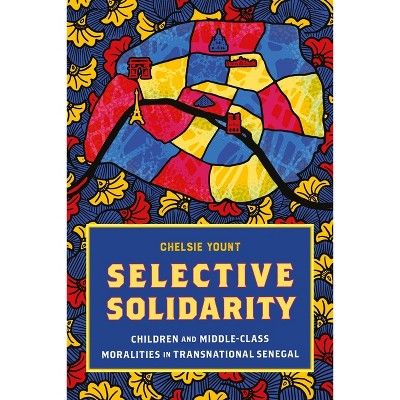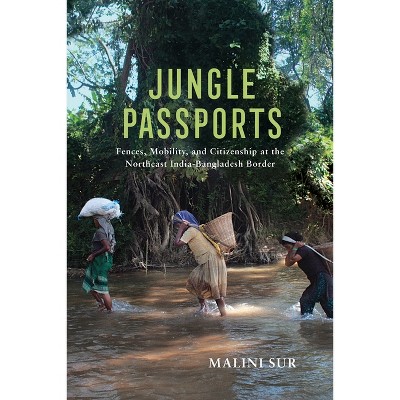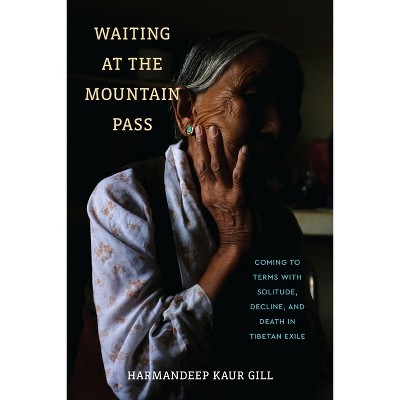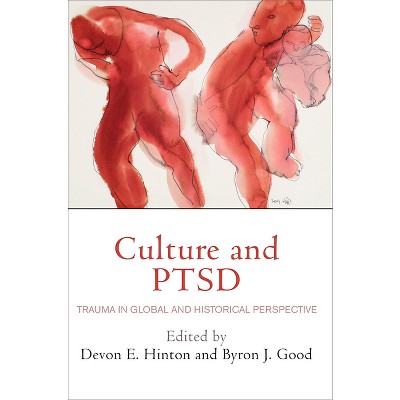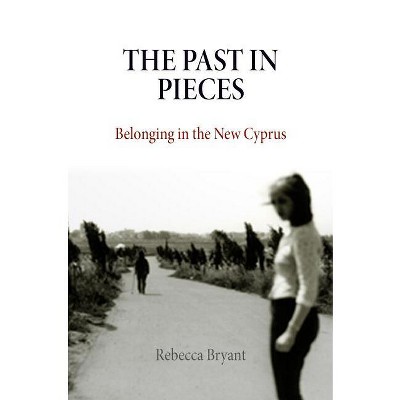Cases Integrating Ethnography and Evaluation - (Studies in Educational Ethnography) by Melissa Rae Goodnight & Rodney Hopson (Hardcover)

About this item
Highlights
- Cases Integrating Ethnography and Evaluation examines the connections between ethnography and evaluation in educational spaces, wrestling with pressing justice and equity issues in today's societies across the world.
- About the Author: Melissa Rae Goodnight is an Assistant Professor in Educational Psychology and Global Studies at the University of Illinois Urbana-Champaign.
- 252 Pages
- Education, Higher
- Series Name: Studies in Educational Ethnography
Description
About the Book
This edited collection examines the connections between ethnography and evaluation in educational spaces, wrestling with pressing justice and equity issues in today's societies within the USA.
Book Synopsis
Cases Integrating Ethnography and Evaluation examines the connections between ethnography and evaluation in educational spaces, wrestling with pressing justice and equity issues in today's societies across the world. The book provides readers from different disciplines and practice areas with detailed accounts of evaluation and ethnographic practice. Contributing chapters employ contemporary ethnographic strategies for engaging people, collecting data, generating knowledge, and taking action to make a social impact.
Concentrating on underrepresented and historically marginalized communities, authors describe evaluations that emphasize the use of fieldwork, participant observation, arts-based strategies, and Indigenous methods to explore the cultural and contextual specificity of educational spaces. Such evaluations pursue greater democracy and justice in educational policy, programs, and systems through forging trusting and reciprocal relationships with individuals and communities.
The chapters situate inquiry in the contested histories and policies of contexts--as they are globally, nationally, and locally defined. Authors present productive fusions of interpretivist and transformative epistemologies, emphasizing both emic understandings and critical framings of social issues. Describing the pursuit of transformative work in collaboration with a diversity of people, these chapters ultimately investigate issues of equity, marginalization, self-determination, (mis)representation, and cultural sustainability in inquiry as well as in education.
Review Quotes
Cases Integrating Ethnography and Evaluation: Making Transformative, Intersectional, and Comparative Connections is one of the most significant contributions to ethnographic approaches to evaluation since Ethnography in Educational Evaluation. This work elegantly and forcefully addresses equity and social justice issues. It is also international in scope. Goodnight and Hopson have produced a transformative, intersectional, and comparative tour de force that advances the field in profound and meaningful ways.
--David Fetterman, Fetterman & Associates, Claremont Graduate University, and Pacifica Graduate InstituteGoodnight and Hopson's book captures the dynamics of culture, democracy, justice, and reciprocity across diverse community and program contexts, interweaving transformative, intersectional and comparative themes and bringing them to life with rich case examples. Chapters focus on arts-based approaches informed by social equity, case-based pedagogy, Indigenous methodologies and critical collaborative ethnography, all of which foreground questions of positionality, power, democracy, and ethics. Scholars and practitioners will find much in these pages to inspire dialogue around reconceptualizing evaluation, and as a teacher of evaluation I will be including these readings in my undergraduate and graduate courses.
--Jill Anne Chouinard, PhD, Director and Professor, School of Public Administration, University of VictoriaStrongly recommended as a guide to ethical evaluations that honor participants' perspectives. Large and small models from several countries, curated by editors with deep understanding of ethnography as well as evaluation.
--Kathryn Anderson-Levitt, Professor Emerita of Anthropology, University of Michigan-DearbornThe field of evaluation needs more empirical examples that illustrate how to conduct transformative work. This text delivers just that! It offers rich case studies that highlight how ethnographic methods can illuminate both individual and collective experiences, as well as the complex social systems and cultural contexts that shape them. The concrete examples of community engagement, participatory approaches, and the interplay of power and privilege make this book an invaluable resource for advancing more authentic, equitable, and transformative evaluation practice.
--Jori N. Hall, President's Distinguished Professor of Educational Psychology, University of Illinois ChicagoAbout the Author
Melissa Rae Goodnight is an Assistant Professor in Educational Psychology and Global Studies at the University of Illinois Urbana-Champaign.
Rodney Hopson serves as Interim Dean and Professor in the School of Education at American University.






